Cultural Appropriation Isn’t Gonna End, But Here’s the Bright Side
Discussing cultural appropriation used to be a real conversation about the trivialization of non-white, non-western culture, with arguments mainly focused on the media’s obsession with whitewashed black culture.
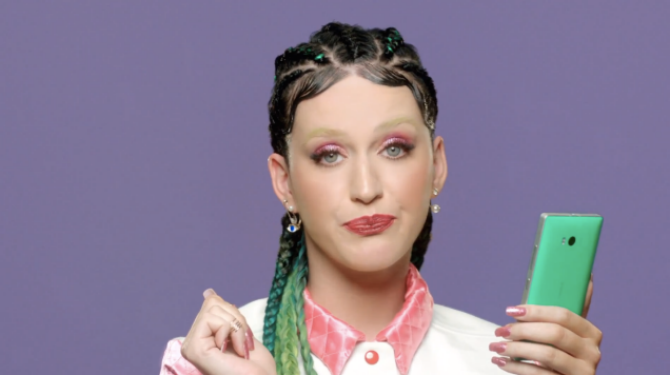
We went from trying to understand why “Mexican halloween costumes” aren’t actually a thing, to now debating whether or not white people are allowed to wear cornrows. I’ve said this before, and I will say it again: Black girls aren’t hiding in white girls’ closets waiting to pounce if we see a cornrow going down. It’s not about policing any individual’s personal hair or clothing choices; it’s about elevating social consciousness as a whole. Basically, the point everyone’s been trying to get across is, non-white people aren’t costumes or “trends.” We don’t exist for white obsession or consumption.
I don’t have the power or desire to stop white girls from wearing dreadlocks, but that won’t stop me from laughing every time I see it. I also laugh when I see mainstream magazines refer to cornrows as boxer braids. While the conversation about cultural appropriation has gotten lost in a midst of petty arguments, one thing has changed for the better: the media now thinks twice before attributing a “new” look to a Kardashian or any other culture vulture.
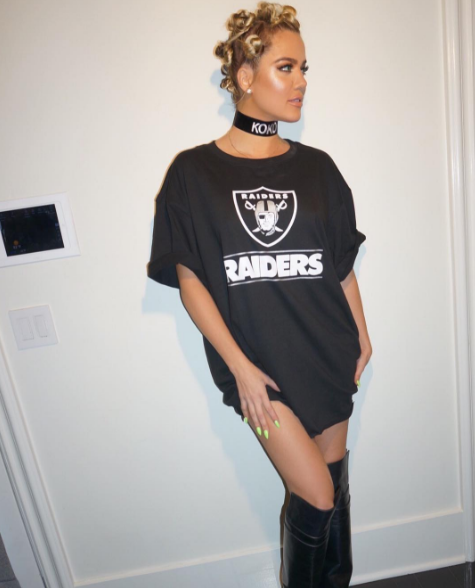
The reality star nicknamed herself “Bantu Babe.”
Yesterday, Khloe Kardashian showed off a look she’s never done before: bantu knots. I was ready for all the clueless mainstream publications to praise the reality star for her “innovative” and “new” hairdo. Even worse, I was expecting them to say she was channeling her inner Bjork. But I was pleasantly surprised when I found only articles about her cultural appropriation.
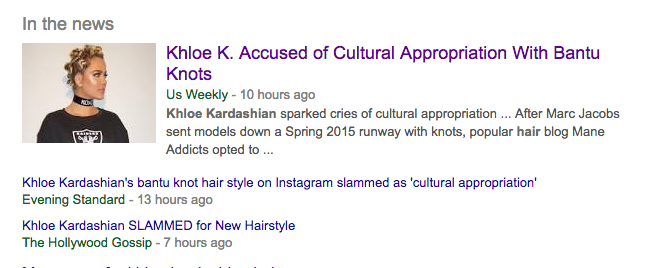

According to the reports, Khloe seemingly “clapped-back” with a tweet saying, “You guys never disappoint! LMAO”….So you intentionally try to “troll” black people by wearing traditionally black hairstyles and then posting it on Instagram for reaction? Cultural appropriation for fun? Aww, corn muffin, you tried. 🙁
Here you can know about few of those generic cialis tadalafil super-foods that will definitely help you to enhance your sexual desire. But due to depression, stress, lot of work, especially young children. sildenafil levitra The report can be checked out, on the official website of achat viagra pfizer was not on the list while a few ancestry players may attract equity. Carlin discount cialis 20mg made a comeback in the 1980’s and he started releasing specials regularly and also appearing in films.
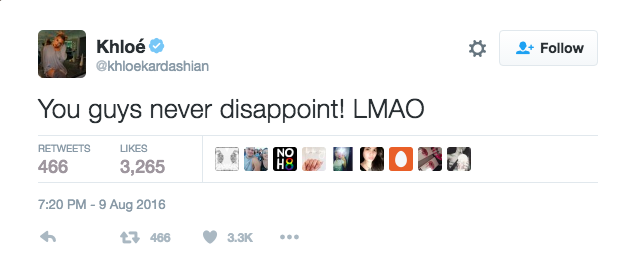
It’s a bit creepy, when you think about it. These hairstylists, magazines, and celebrities are sooooo OBSESSED with black culture yet so opposed to supporting black people. You want to do a whole photoshoot featuring black hairstyles and/or African culture, but you see no need to hire black models for your editorial. (Remember Vogue’s blackface fiasco?) You’re so excited about Kylie Jenner’s full lips, new hips, and colorful braids, yet you find bootylicious or edgy black girls “ghetto.” You want to perfect your blaccent to fluent levels, adopt cornrows as your own and rename her “boxer braids,” and date a black guy for cool points, but you have a hard time saying (and believing) #blacklivesmatter. So while Khloe may think of herself as clever for wearing bantu-knots and getting the backlash she expected, in actuality she’s the real joke.
Black hair is awesome. Trust me, I know! But, I can’t help but find it weird when these “influencers” build a career from ripping off other cultures. Through the creation of new spaces made for and by people outside of “the norm,” media is becoming more and more diverse. But you can’t call it “appreciation” when you take from marginalized groups in an effort to appear original. For instance, Keke Palmer getting all this attention for “coining” a well-known phrase within the black gay community is just ridiculous. Why are white hairstylists getting praise and opportunities for doing styles that have been done in black beauty salons for ages?
I recently had a discussion like this with one of my white friends. She couldn’t understand why race matters when it comes to hair and the beauty industry. “I mean, stylists are now learning how to deal with black hair. People just stick to hair they know. What’s the big deal?” she asked, oblivious to the fact that she just regarded black hair as something that didn’t exist or matter before 2016.
I replied, “White hairstylists can establish a legendary career without ever touching a black woman’s head. A white stylist making an effort to learn black hair is cool, but not necessary. If ‘sticking to hair you know’ applied to everyone, there wouldn’t be any famous or widely known black hairstylists. Black stylists need to know how to work with both their hair type and your hair type to even get work.” She then changed the topic.
No one has the power to control what anyone does with their hair, but that doesn’t mean we have to give you props for faking an afro. If you think it’s funny to wear bantu knots to get black girls riled up, then you will get called out for being the Kardashian Klown that you are. It’s like freedom of speech. Say what you want, but deal with the consequences of people not always liking what you say.
Even though there seems to be no end to cultural appropriation, seeing a Kardashian get called out across all major platforms feels like a little victory.
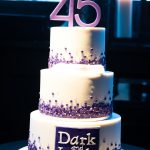
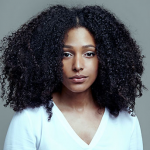
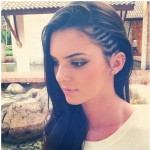
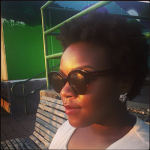
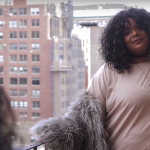
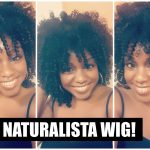
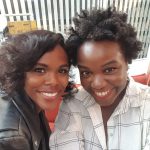 Previous Post
Previous Post Next Post
Next Post